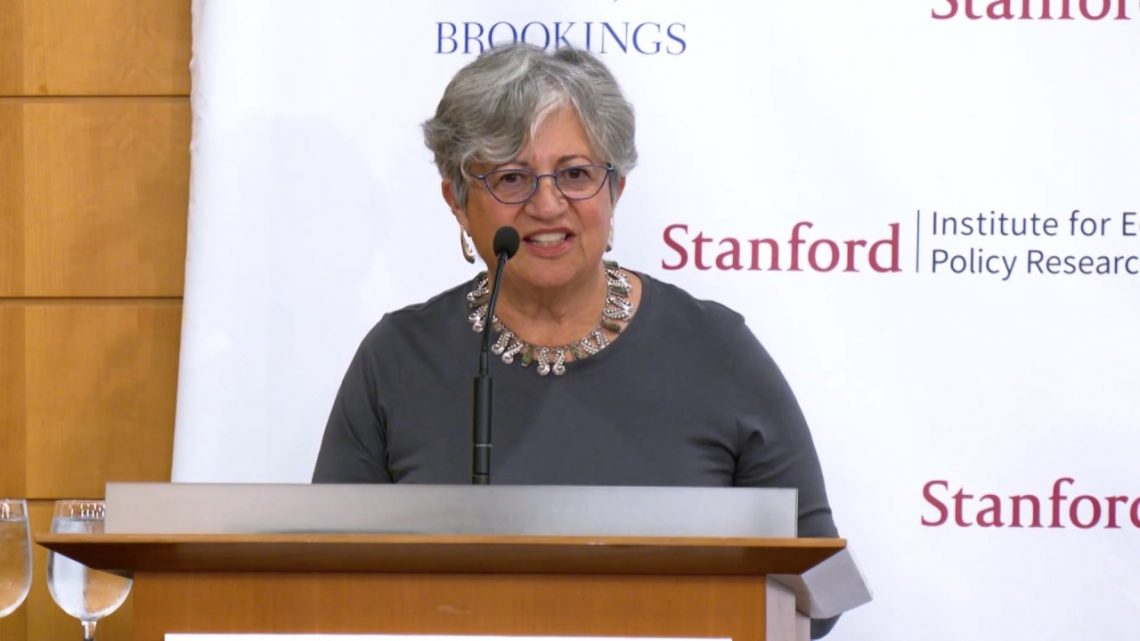
Some notes on Economic Policy Innovations to Combat Climate Change
November 10, 2019
I attended this a few weeks ago (below is the opening, click here for the whole thing):
My impressions:
Mary Nichols, Cal. Air Resources Board –
*Better ag/soils standard to retain/sequester carbon
Larry Goulder –
Chris Field –
Lucas Davis –
Roberton Williams –
My thoughts: what Chris said about BECCS is especially important and depressing. I've been counting on it to save our bacon. Maybe there's still a way to do it that doesn't consume as much land (algae plots floating over the ocean?).
We in California like to think we're ahead of everyone. I wonder if Mary Nichols' comments reflect that - negative emissions is great IMO but we've also got a lot to do just to knock down our emissions.
In case it's not obvious, the forum had something of a free-market slant. Not all the speakers of course, and there's nothing wrong with discussing those solutions, but just acknowledging the slant here.
Lucas' comments on air conditioning is unsettling. Add to that the effect of increased meat consumption as countries develop and then we have a real problem.
See also, this Twitter thread from John Mashey on a recent forum including Chris Field and Katherine Hayhoe.
My impressions:
Mary Nichols, Cal. Air Resources Board –
- Seemed to somewhat deemphasize regulatory approach as opposed to cap and trade
- CARB future efforts:
*Better ag/soils standard to retain/sequester carbon
Larry Goulder –
- China moving to nationwide cap and trade by end of year, doubling the amount of carbon subject ot market regulation. Doing it as much for local pollution issues as for climate change itself.
- Both Larry and one other (Christy Goldfuss?) emphasized tradeable performance standards as a bridge to a carbon price. Christy(?) mentioned that in Canada, one option for a performance standard is to pay a tax.
- Larry also cautioned that tps might lock in and make carbon pricing less likely
Chris Field –
- We’re assuming geoengineering is technically simple and cheap, but we don’t really know, and it would be very difficult to uniformly cool things down, let alone not change other weather patterns.
- Particularly concerned about BECCS and how it would consume as much land area as all of current agriculture
Lucas Davis –
- What keeps me up at night is potential air conditioning in low and middle income countries
Roberton Williams –
- Remember regulations can also be regressive. Paying rich people to drive Teslas has regressive effects.
My thoughts: what Chris said about BECCS is especially important and depressing. I've been counting on it to save our bacon. Maybe there's still a way to do it that doesn't consume as much land (algae plots floating over the ocean?).
We in California like to think we're ahead of everyone. I wonder if Mary Nichols' comments reflect that - negative emissions is great IMO but we've also got a lot to do just to knock down our emissions.
In case it's not obvious, the forum had something of a free-market slant. Not all the speakers of course, and there's nothing wrong with discussing those solutions, but just acknowledging the slant here.
Lucas' comments on air conditioning is unsettling. Add to that the effect of increased meat consumption as countries develop and then we have a real problem.
See also, this Twitter thread from John Mashey on a recent forum including Chris Field and Katherine Hayhoe.


